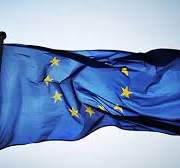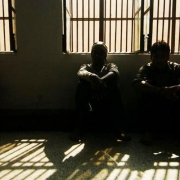THE TEMPORARY PROTECTION DIRECTIVE
Council Directive 2001/55/EC of 20th July 2001, the ‘Temporary Protection Directive’, was established by the European Union as a response to the conflicts in the former Yugoslavia and Kosovo in the 1990s, that highlighted the need for a tool to assist with max influxes of displaced persons into EU member states.
On the 4th March 2022, the Council adopted unanimously the implementing decision to activate the Temporary Protection Directive for the first time since its establishment, for persons fleeing the conflict in Ukraine.
The Council Implementing Decision that activated the Directive highlights;
“The Union has shown and will continue to show its resolute support to Ukraine and its citizens, faced with an unprecedented act of aggression by the Russian Federation.”
The Directive is grounded in solidarity and promotes a balance of efforts between EU Member States. It is a legislative tool that enables Member States to offer persons legally resident in Ukraine who are fleeing the war, temporary protection upon arrival in an EU member state. Temporary protection will be initially provided for 12 months. Unless terminated, this period will be extended automatically by six monthly periods for a maximum of one year.
The Council Implementing Decision notes that those who are eligible for temporary protection under the Directive will “enjoy harmonised rights across the Union.” Persons holding temporary protection in Ireland will enjoy the rights afforded under Section 60 of the International Protection Act 2015;
(a) to seek and enter employment, to engage in any business, trade, or profession and to have access to education and training in the State in the like manner and to the like extent in all respects as an Irish citizen,
(b) to receive, upon and subject to the same conditions applicable to Irish citizens, the same medical care, and the same social welfare benefits as those to which Irish citizens are entitled, and
(c) to the same rights of travel in the State as those to which Irish citizens are entitled.
The below paragraphs outline who will be covered by the Directive;
- Ukrainian nationals residing in Ukraine who are displaced as of 24 February 2022 following the military invasion by Russian armed forces on that date;
- Third-country nationals or stateless persons legally residing in Ukraine who are displaced as of 24 February 2022 following the military invasion by Russian armed forces on that date and who are unable to return to their country or region of origin in safe and durable conditions because of the situation prevailing in that country. This could include persons enjoying refugee status or equivalent protection, or who were asylum seekers in Ukraine at the time of the events leading to the mass influx. Third-country nationals who were legally residing in Ukraine on a long-term basis at the time of the events leading to the mass influx should enjoy temporary protection regardless of whether they could return to their country or region of origin in safe and durable conditions; and
- Family members of the above two categories of people, in so far as the family already existed in Ukraine at the time of the circumstances surrounding the mass influx, regardless of whether the family member could return to his or her country of origin in safe and durable conditions. In line with Council Directive 2001/55, a family member is considered as the spouse of the above two categories of people or his or her unmarried partner in a stable relationship, where the legislation or practice of the Member State concerned treats unmarried couple in a way comparable to married couples under its law relating to aliens; the minor unmarried children of the of the above two categories of people or of his or her spouse, without distinction as to whether they were born in or out wedlock or adopted; other close relatives who lived together as part of the family unit at the time of the circumstances surrounding the mass influx, and who were wholly or mainly dependent of the above two categories of people.
Berkeley Solicitors wishes to express our deepest concerns for the people of Ukraine.
If you or your family require advice on your eligibility for temporary protection or in respect of visa applications for family members in third countries, please do not hesitate to contact our office.
The Temporary Protection Directive can be found here.
The Council Implementing Decision that activated the Temporary Protection Directive can be found here.



